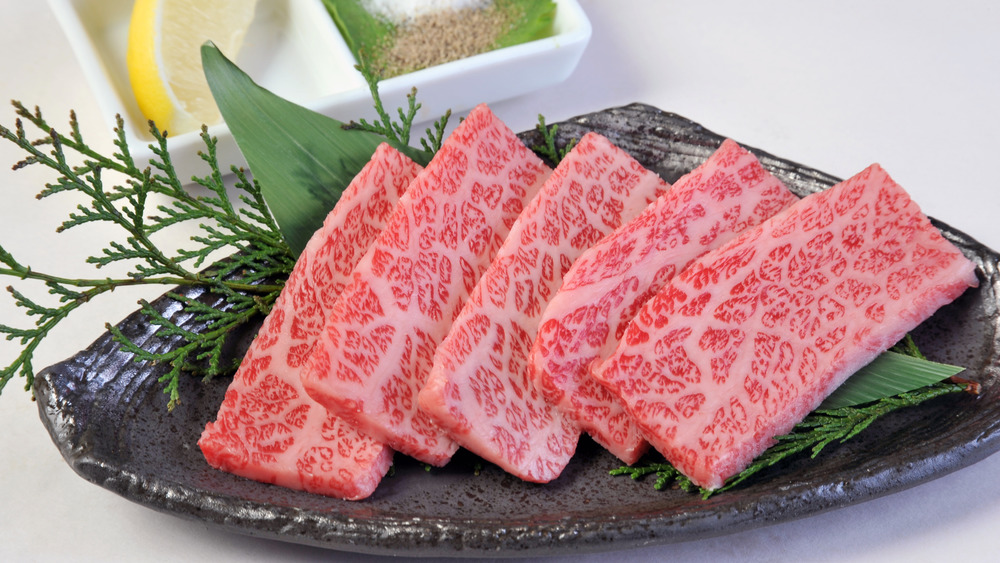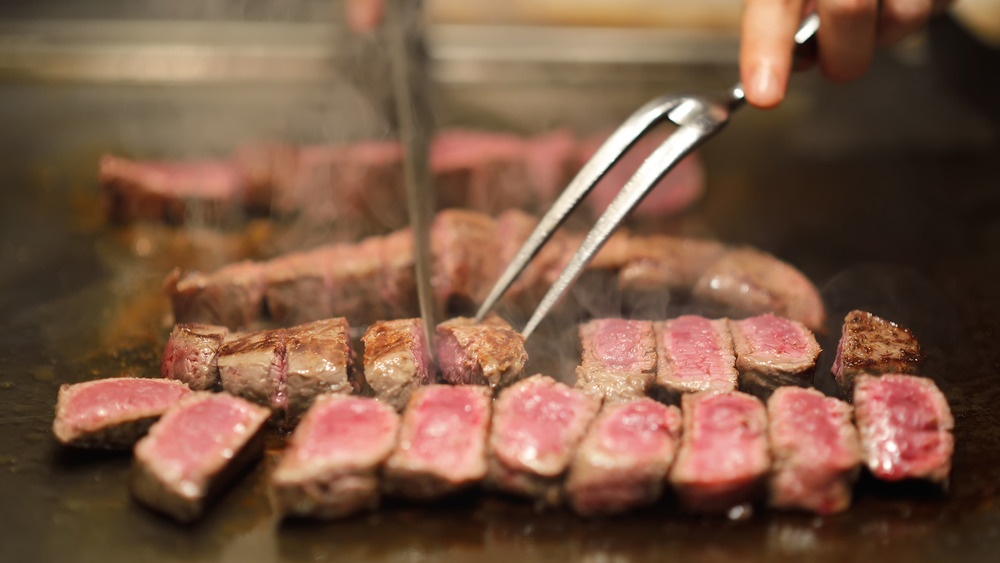Why You Should Never Order Cheap Kobe Beef At A Restaurant
Ah, Kobe beef. Most serious meat eaters know the name and recognize it as the Holy Grail of steaks. This Japanese beef with a heavenly marbling and an impossibly fatty, buttery flavor is a legend among steak enthusiasts, and as befits its status, it's incredibly rare and painstakingly certified. As Rachel Tan of Michelin Guide Digital tells us, only a few thousand Japanese wagyu cows per year earn the Kobe certification. They all have to be a very specific, pure Tajima breed that's bred, lived, and been slaughtered in the prefecture of Hyogo. Proper Kobe beef is so thoroughly marbled that it can appear outright white or pink, and its sweetish flavor is so intense that it's generally eaten in very thin slices, and with only small amounts at one sitting. It can also be a hassle to cook, because its massive fat quotient makes it easy to burn.
All of this sounds very complicated and expensive. So what's the deal with restaurants with cheap Kobe beef on their menu? Unfortunately, Kobe beef's fame and prestige means it attracts all sorts of shady business, and that bargain Kobe steak you spotted is probably part of it. In fact, let's take a look at why you should never order cheap Kobe beef at a restaurant.
Chances are it won't be Kobe beef at all
Because Kobe beef is rare, it's very difficult to get. Per Robb Report, as of 2018 there was a grand total of 32 restaurants in the entire U.S. that were certified to sell Kobe. As such, it's hard to believe that any restaurant would part from the stuff on the cheap, and that's because, well, they don't. In 2012, Larry Olmsted of Forbes exposed the fact that it's, very, very hard to get your mitts on Kobe in America, but because it has a great reputation, steakhouses have been known to scam you by selling inferior beef as Kobe. Town & Country points out that this applies to even certain expensive fine-dining restaurants that charge three-digit sums for "Kobe" that's actually inferior Wagyu, so just imagine how authentic that $30 Kobe burger can realistically be. Oh, and speaking of burgers — Business Insider notes that true Kobe is way too tender to make a proper patty, so chances are "Kobe" burgers are made of something completely different — like "Wangus," a blend of Angus beef and American-raised Wagyu.
The deceit goes further than just Kobe, as well. Though Kobe is clearly the cream of the crop, Japanese wagyu in general tends to be quite highly regarded. As such, there are multiple ways to fake wagyu beef, too. Oof.

